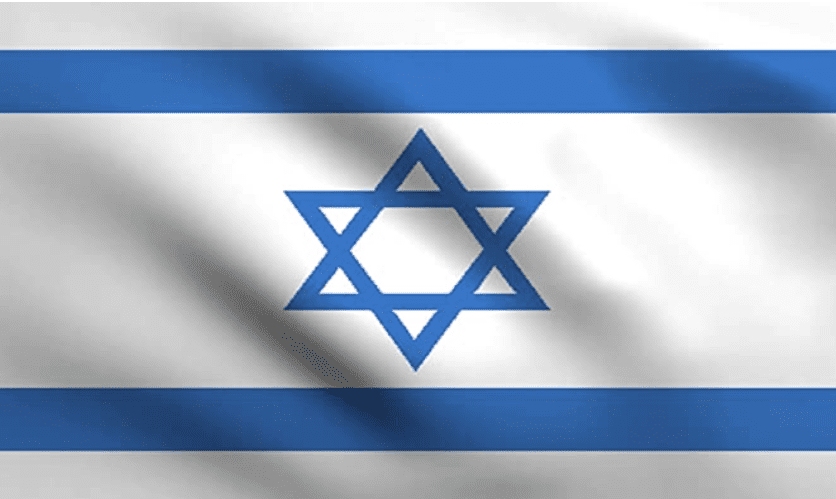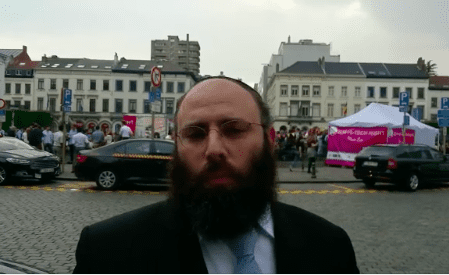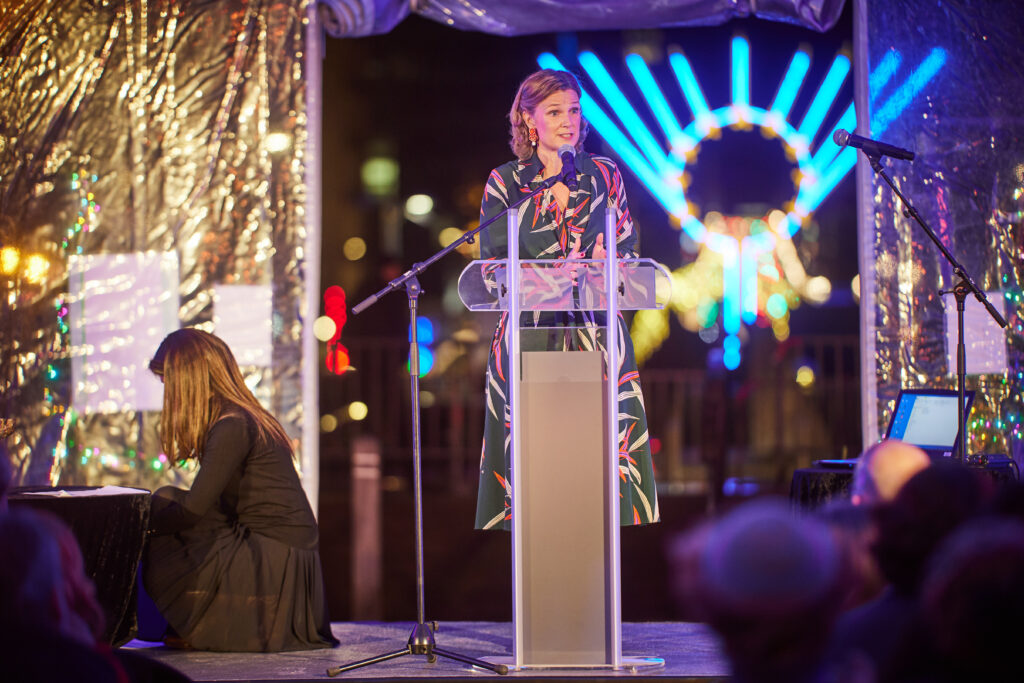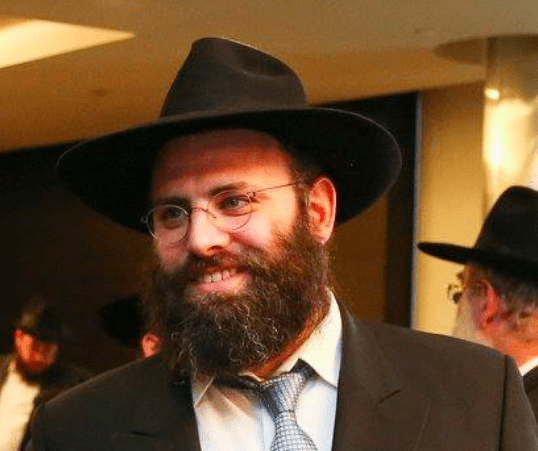The EJA warmly thanks H.E. Andrej Plenković, Prime Minister of the Republic of Croatia, for His Excellency’s kind wishes to the European Jewry in light of the upcoming holiday of Rosh Hashanah

The EJA warmly thanks H.E. Andrej Plenković, Prime Minister of the Republic of Croatia, for His Excellency’s kind wishes to the European Jewry in light of the upcoming holiday of Rosh Hashanah


As a rabbi, I prefer not to get involved in politics and my opinion is that a politician should not interfere with religion. But where does politics start and where do rabbinical matters end? Is euthanasia a religious matter or a political problem? And who decides how far freedom of education extends?
That difference is even more unclear in Israel, because: “Israel without Torah is like a body without soul”, one can’t separate the State of Israel from Judaism. And therefore, we see in the Knesset politicians with rabbinical opinions and rabbis as politicians.
But even the Jew who is not an Israeli resident has the conviction that he may state his opinion and interfere with Israeli political decisions because, he argues, without centuries of daily prayers in which we asked G’d to allow us to return to Jerusalem, Israel would not be today an Independent State. However, my opinion is that just as the Israeli citizen does not make statements about the Dutch Prime Minister, Rutte, we, not living in Israel, shouldn’t interfere in internal Israeli politics.
However, non-Jewish society sees us as an extension of Israel. Over and over again, I have to explain that I am Dutch and that the compliment that my Dutch is so fluent, is misplaced. You’re not going to give that compliment to the bishop or the preacher, do you? But in according with their opinion “the Jew is Israel and Israel is the Jew”.
And yet there is a heart of truth in their falsehood, for Jews know themselves interconnected by Jerusalem, our capital, where one day the Third Temple will rise when the ultimate peace will be there “for all inhabitants of Your earth.”
And until then? When Netanyahu called upon French Jews to emigrate to Israel because of anti-Semitic violence, I was pushed in front of a journalist’s microphone and was asked, “Rabbi, what do you think of Netanyahu’s call? Do you really believe that there is no place for Jews in the Netherlands anymore?” Wow, I thought, that’s a tricky one. It is not possible to request time for reflection, to say that Jews no longer belong in Europe is unwise and disagree in public with Netanyahu does not seem right. And therefore, my diplomatic, rabbinical and politically coloured answer was: Great we have got Israel for all those who must escape anti-Semitism. My parents had nowhere to go. But if and when I go on aliyah, will not be determined by fear for terrorism. I decide for myself, because I am independent, like the State of Israel!

European Jewish leader Rabbi Menachem Margolin says Brussels police told him to remove his kippah at his own event.
Police instructed the organizer of an eventcelebrating Europe’s technological ties with Israel in Brussels to remove his kippah.
“I was just requested by a security officer to remove my kippah for security reasons,” Rabbi Menachem Margolin, the founder of the European Jewish Association and Europe Israel Public Affairs, told Arutz Sheva outside the event.
“But I will never do it,” said Rabbi Margolin.
Despite the police’s request, Rabbi Margolin said that the event was “great” and that “thousands of people celebrated Jerusalem’s high tech.”
“This is the second time that we brought Israeli technology, high tech companies from Jerusalem, to present what they do here in Brussels in front of the European parliament.
“Thousands of people enjoy and can see what Jerusalem can contribute to their lives,” he said.
(to watch the video click on the picture)

The Article was published in Aritz 7

The President of the European Commission, Ursula von der Leyen, will celebrate Chanukah on Monday 19 December by lighting the flame on a large menorah in front of the European Commission’s headquarters in the Brussels EU quarter.
As part of the cultural agenda of Brussels, the city’s Mayor Philippe Close will light the second candle of Chanukah.
The event is seen as a strong sign for the European Jewish community in the wake of the EU’ clear commitment to ensuring a Jewish future and fostering Jewish life as laid out in the EU Commission’s new strategy for combatting resurgent antisemitism and fostering Jewish life in Europe.
European ambassadors and civil servants are expêcted to attend the event.
The lighting, which is organized in partnership with the European Jewish Association and the City of Brussels, will take place on Monday at 18:00 on Schuman Square and will be followed by a concert from the singer Haim Tzvi.
Chanukah, the Jewish festival of lights, is one of the most popular Jewish holidays worldwide. Candles are lit over 8 days to remember the miracle of one day’s worth of oil lasting eight following the reconsecration of the Temple in Jerusalem. Its message of hope, light and emancipation resonates are universal and timely. Celebrations worldwide are attended by heads of states who often light their own candles.
In addition to Monday’s lighting, Chanukah will also be celebrated the next day in the European Commission with the presence of the European Commissioner Janez Lenarčič, honoring Hias Europe, the world’s oldest refugee organisation, first established in the 1880s to help Russian Jews fleeing from pogroms resettle in the United States. Since then, HIAS Europe has had a strong presence throughout Europe, resettling hundreds of thousands of European Jews fleeing from violence and conflict. Today, HIAS Europe is a global humanitarian organization with thousands of employees in 22 countries dedicated to helping forcibly displaced persons, irrespective of their background. During more than a century of activity, HIAS Europe has helped more than 4.5 million people escape persecution worldwide »
EuroChanukah is organised every year by the European Jewish Community Centre (EJCC).

This week I spent a lot of time going to events marking the Shoah in Brussels. They were, rightly and fittingly, solemn occasions. But here’s the thing: at every event, I found my fellow Jews talking together, smiling, sharing stories and there was even the odd joke or two.
Even at this darkest of commemorations, there was life and a celebration of the deep bond between us that transcends the shared pain and history. And it stood in stark contrast to the others present who were sombre faced and bore the weight of history in a very different way.
It seemed to me that the reminder to stay positive and rejoice in your Judaism that I tried to leave you with last week needn’t have been said, as it was clearly and demonstrably in evidence.
Because when you think of it, and you delve a bit deeper into our faith, the reason becomes clear: Joy (Simcha), is our central artery, feeding our heart and mind and driving us forward.
Moses after leading us through trying times, through hardship, rebellion and our complaining, understood us well when he said that it is our capacity for joy that gives the Jewish People the strength to endure.
Explaining to a non-Jew our holidays often ends with the cliché “they tried to kill us, let’s eat”, but this throwaway comment masks a more fundamental truth.
Let’s pick a holiday out at random…Sukkot for instance.
On Sukkot we leave the security and comfort of our houses and live in a shack exposed to the wind, the cold and the rain. Yet we call it zeman simchatenu, “our season of joy”.
Try another: Purim.
On the face of it a deeply depressing story, and yet we overcame, and boy, do we celebrate!
Time and time again, throughout our texts, we are enjoined to celebrate life, to rejoice.
Now either we are a bunch of deeply weird people who seem to thrive on adversity, orsomething deeper is going on here. You don’t need to guess what side I’m going to lean on. But let’s dwell on the ‘weird’ idea for a minute.
The founder of the Chassidic movement was once asked: “Why is it that Chassidim burst into song and dance at the slightest provocation? Is this the behaviour of a healthy, sane individual?”
The Baal Shem Tov responded with a story about a deaf man coming across a group of townspeople dancing to a musician that he hadn’t seen, and he thought they had gone mad.
The point is, without the context, such expressions of joy can appear disconcerting or perplexing.
Our context runs deep. We are commanded to Love the Lord our G-d with all our heart and all our soul and all our might. Moses as we touched upon earlier put Joy at the heart of Judaism (even as he was reading out the curses), and our Mitzvot? Well, the concept of simcha shel mitzvah, the “joy of a mitzvah,” has always been part and parcel of Jewish teachings.
Rabbi Lord Sachs, as eloquent as always, once told a story that toward the end of his life, having been deaf for twenty years, Beethoven composed one of the greatest pieces of music ever written, his Ninth Symphony. It became the West’s first choral symphony. The words he set to music were Schiller’s Ode to Joy.
Now, Ode to Joy, as any Europhiles reading this will know, is the anthem for the European Union. And Rabbi Sachs story came to mind as I was looking at the European flag at one of the events.
Because looking around the room, looking at my fellow Jews smiling, living, rejoicing in their Judaism at this tragic commemoration, and contrasting it with the others present, underlined to me not only the context I was just talking about, but how each of us, each Jew, has, as Rabbi Sachs alluded to, their own ‘ode to Joy’ within them, an ode that to those who are deaf to it might indeed appear odd, but to us comes not as second nature, but instead as the primary essence of our being.
Rabbi Menachem Mendel of Lubavitch wrote that “The Baal Shem Tov wiped away tears from the Jewish people. He worked hard to ensure that every Jew would be happy simply because he is a Jew.”
There’s still a lot more work to be done on this by all of us, but looking around the room at those various events, it was clear to me that the joy of being a Jew remains the ‘perfect defeat’ of the Holocaust, and a reminder, if one were needed, of what a beautiful thing it is to be Jewish.
We must always continue to go out with Joy.
It’s a challenging time for Jewish communities in Europe. Anti-Semitism is on the rise as populism and the politics of the lowest common denominator are gaining traction. Our communities often need round the clock protection and our practices and customs such as keeping Kosher are under pressure from increasing political interference.
| Cookie | Duration | Description |
|---|---|---|
| cookielawinfo-checkbox-analytics | 11 months | This cookie is set by GDPR Cookie Consent plugin. The cookie is used to store the user consent for the cookies in the category "Analytics". |
| cookielawinfo-checkbox-functional | 11 months | The cookie is set by GDPR cookie consent to record the user consent for the cookies in the category "Functional". |
| cookielawinfo-checkbox-necessary | 11 months | This cookie is set by GDPR Cookie Consent plugin. The cookies is used to store the user consent for the cookies in the category "Necessary". |
| cookielawinfo-checkbox-others | 11 months | This cookie is set by GDPR Cookie Consent plugin. The cookie is used to store the user consent for the cookies in the category "Other. |
| cookielawinfo-checkbox-performance | 11 months | This cookie is set by GDPR Cookie Consent plugin. The cookie is used to store the user consent for the cookies in the category "Performance". |
| viewed_cookie_policy | 11 months | The cookie is set by the GDPR Cookie Consent plugin and is used to store whether or not user has consented to the use of cookies. It does not store any personal data. |